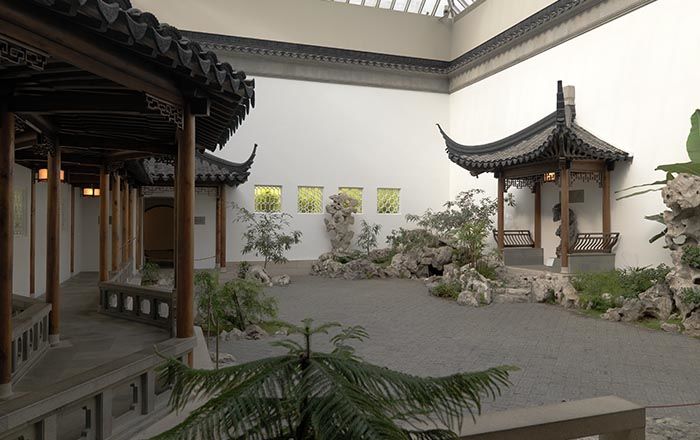Returned to lender The Met accepts temporary loans of art both for short-term exhibitions and for long-term display in its galleries.
Poem in Cursive Script
Huang Daozhou Chinese
Not on view
One of the most outspoken officials in the late Ming period, Huang Daozhou persistently risked his life and career by criticizing court authorities. After the Manchu conquest of north China, he was active in the revivalist movement under the Southern Ming regime and died a martyr.
Huang was an eminent scholar on a variety of subjects, from Neo-Confucianism to astronomy. Although he considered calligraphy a mere pastime, his accomplishment is no less impressive. In this work of running-cursive script, he altered the standard configuration of characters to create precariously balanced forms that often rely on a calculated final stroke to adjust their proportion and center of gravity. The sharp, fastmoving brushwork generates a rhythmic cadence of pent-up energy and release.
Huang composed this poem during an outing to the mountains by West Lake, in Hangzhou, in the winter of 1638. In it he laments the physical frailty of old age and expresses his longing for a life in reclusion. Among his companions on this trip was Ni Yuanlu (1593–1644).
cat. no. 9
Due to rights restrictions, this image cannot be enlarged, viewed at full screen, or downloaded.

